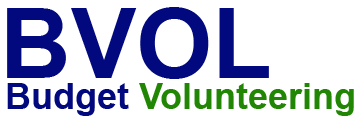WORK DESCRIPTION:
Our teaching programme is in the beautiful Western Cape’s Garden Route. Standards in the schools are generally very high, but materials and resources may be scarce.
You'll begin your placement by assisting the teachers but, depending on your ability, you may progress on to being given complete control of a particular class or group. You'll receive a lot of help and support from the teachers and staff at the schools, but you should be prepared to use your own initiative and ask when you need something.
TEACHING ENGLISH & OTHER SUBJECTS:
You will normally be asked to stand up in front of a class and teach conversational English - you are not expected to be an expert on grammar or literature. The important thing is to help people speak English. You may also be asked to help with other subjects, but this is optional and only if you feel confident.
The Teaching Suggestions Booklet we provide you with has ideas for teaching English and will also help structuring lessons in other subjects. Video facilities are available in some schools and audio equipment is quite commonplace.
You will most likely teach in more than one school. Most of the schools are State schools, both secondary and primary. You will generally be asked to help out with any age groups. The average class size ranges from 15 to a manageable 40.
SCHOOL TERMS IN SOUTH AFRICA: Dates for the 2014 school terms (semesters) are given below.
- Term 2: 7 April – 27 June
- Term 3: 21 July – 3 October
- Term 4: 13 October – 10 December
Generally the last week before terms end is given to exams and tests. This means that you will generally find your work load dropping during this week and you will usually find more free time than normal school time.
EXTRA ACTIVITIES YOU MAY BE ABLE TO INCORPORATE INTO YOUR PROJECT
You may also have the opportunity to provide help and support to the local community through the various afternoon activities we have to offer. This is an excellent way to immerse yourself in the African culture, but most importantly to give a caring hand to the local community. The activities could range from helping out at;
· The Children's Home: Make the afternoons fun and exciting for these lovely children by playing games, helping them with home work and just being there to give them the attention that they so appreciate.
· After-school drama or sports - Take some time out after school to set up after school sports or drama clubs, the children love it and it's a great way to get to know them better in a relaxed and fun environment. If you'd like to set up a drama or sports club, please let us know when you apply so that we can arrange it with the school before you arrive.)
· Other community projects - Past volunteers have helped to paint the outside of a crèche that was in desperate need of a lift. The crèche is now looking very cheerful with brightly coloured walls. A jungle gym was donated to this orphanage and volunteers also helped to put it together for the crèche too! There may be other similar projects available at the time you're there that you might want to participate in.
ACCOMMODATION: THE VOLUNTEER HOUSE:
The volunteer house in Knysna is within walking distance of the town, yet set against a natural green belt. The bird life is prolific and often the local Vervet monkey troop comes to visit to entertain the volunteers with their antics. The sunset views from the top balcony of the volunteer house of the Knysna lagoon are beautiful and great way to relax after a day working at your placement or to catch up on your tan in the summer. See photo on right-hand side.
The house is large and spacious and also has a self-contained flat downstairs for couples and families. The bedding in the two same sex dorms and the towels in their ensuite bathrooms are changed regularly every Friday by our much loved cleaner, Pretty, and there is plenty of cupboard space to store your clothing.
Facilities include a kitchen kitted out for cooking, dining area, a few bathrooms, TV, DVD player, free Wi-Fi, garden and several wooden verandahs.
There is an outside courtyard and garden in the secure grounds where you can have a typical South African barbeque known there as a ‘braai’. Make sure you try the local spicy sausage known as ‘boerewors’ and the Karoo lamb chops are to die for on a ‘braai’, but if fish is more to your taste then a fish ‘braai’ with South African ‘snoek’ is a must.
FOOD:
You'll be given a food budget which will cover your basic essentials (but not extras like alcohol, snacks and eating out). The kitchen has all the cooking amenities that you might need to take advantage of preparing meals with some of the great seafood, meat, fresh fruit and vegetables South Africa has to offer.
There are supermarkets and local shops where you'll do your food shopping.
There are plenty of excellent restaurants within walking distance that offer the most incredible local and international cuisine which our volunteers rave about. Knysna is also famous for its oysters and even has an annual Oyster Festival where everyone eats and drinks far too much!
The waterfront and marine is beautiful and full of restaurants and cafes with cuisine that ranges from breakfast, coffees, cakes and snacks, through to sumptuous meals and various different nationality menus.


